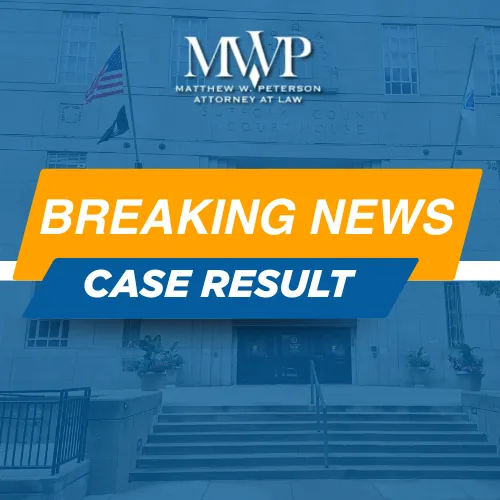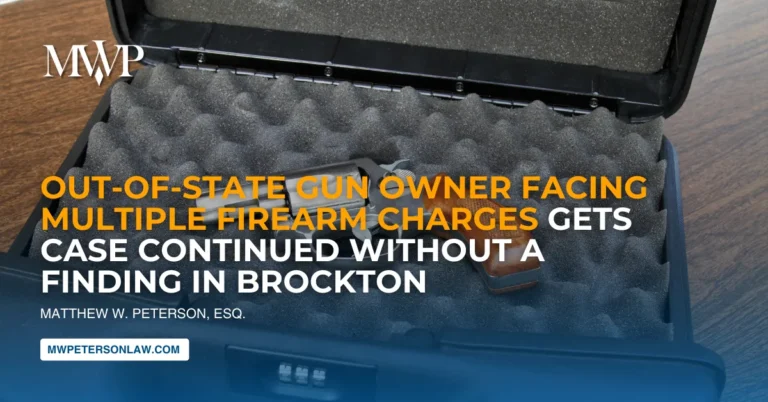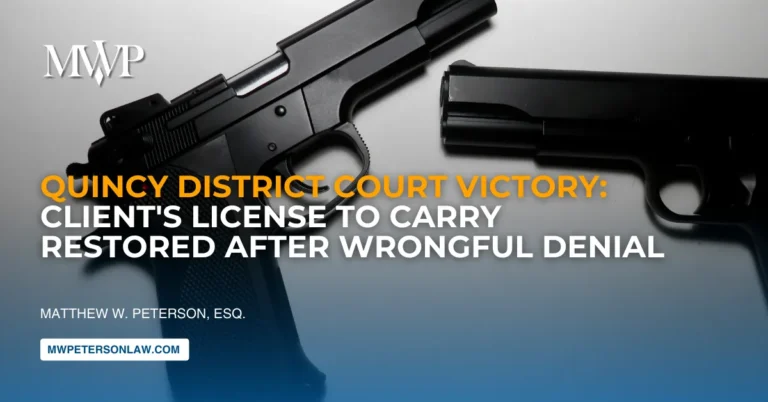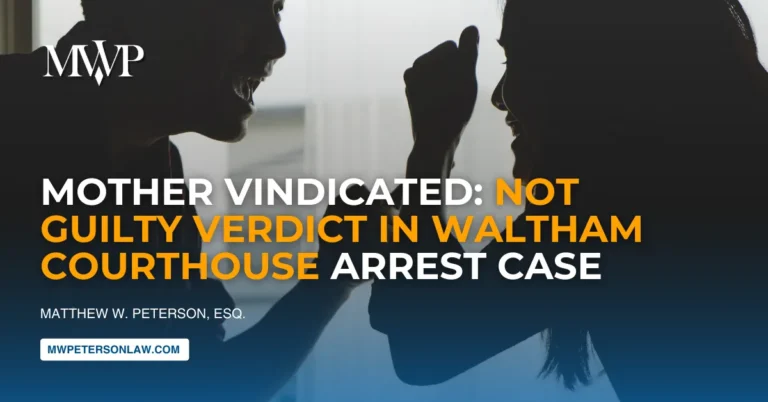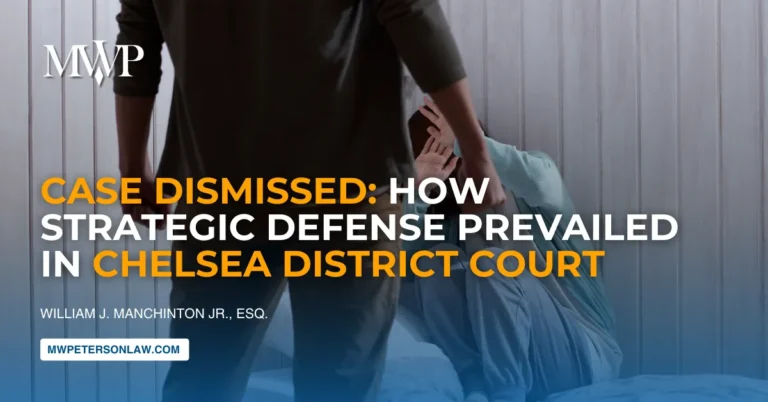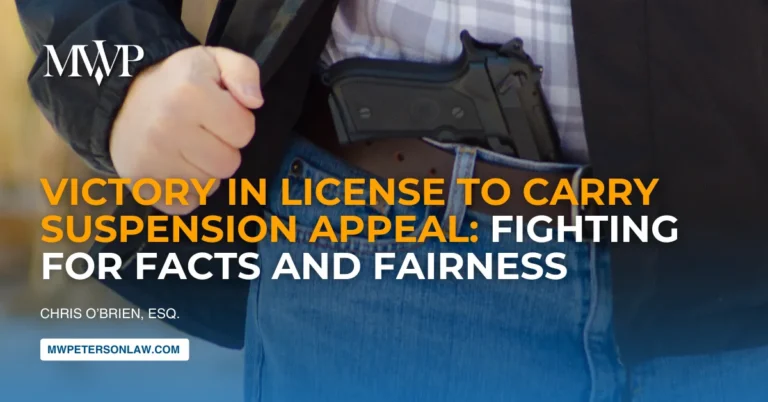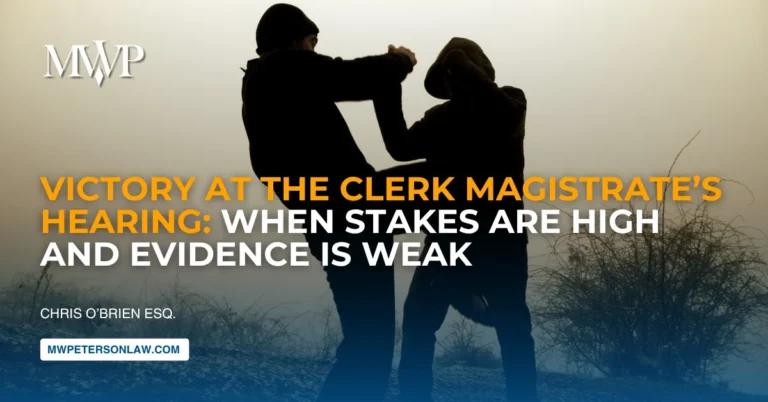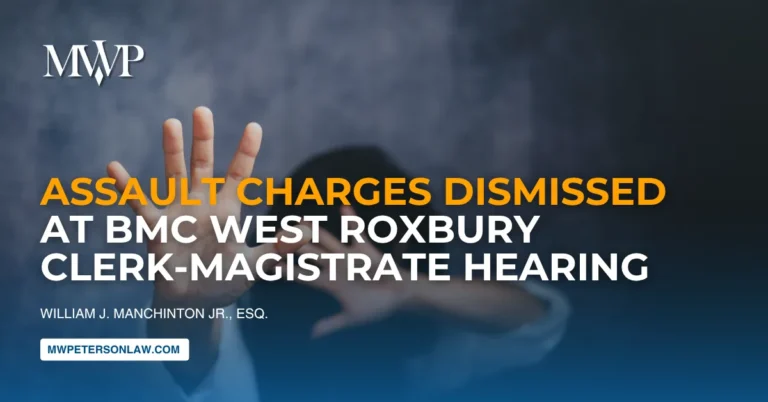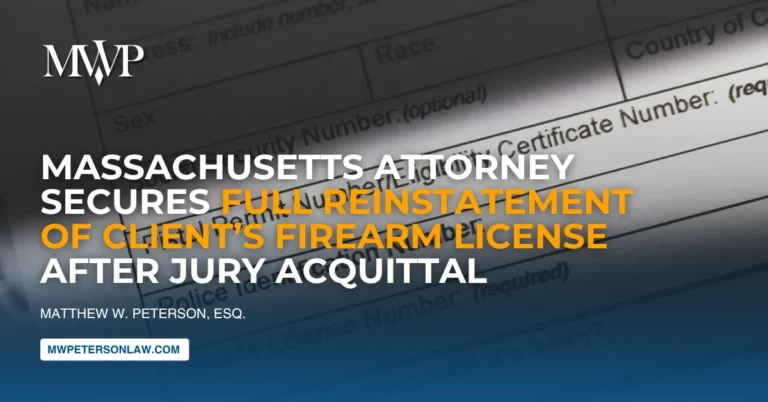Facing traffic charges can be a daunting experience, especially if it’s your first encounter with the legal system. The fear of losing your driving privileges, accumulating a criminal record, or even facing fines can be overwhelming. In January 2024, Matthew successfully helped a client secure the dismissal of negligent operation and other traffic charges in Newburyport District Court. Our client, who was charged with speeding through West Newbury on her way to work, faced criminal charges for these offenses. At the magistrate’s hearing, we were able to get the charges dismissed, keeping them off her record and allowing her to maintain her driving and working status in Massachusetts. This blog post aims to guide you through the process, providing valuable insights and tips on how an attorney can assist in a magistrate’s hearing.
What is a Magistrate’s Hearing in Massachusetts?
A magistrate’s hearing, also known as a clerk’s hearing, is an informal proceeding where a clerk magistrate determines whether there is probable cause to issue a criminal complaint. Unlike a formal court trial, this hearing offers a less intimidating environment where individuals can present their case and potentially avoid criminal charges.
The Role of the Clerk Magistrate
The clerk magistrate oversees the hearing, evaluates the evidence, and decides whether to dismiss the case or proceed with formal charges. Their decision is based on the evidence presented and the circumstances surrounding the incident.
Benefits of a Magistrate’s Hearing
Magistrate’s hearings provide an opportunity to resolve minor criminal matters without going to trial. They can result in a dismissal of charges, which helps keep your criminal record clean and avoids more severe penalties.
Who Can Attend?
Typically, only the defendant, their attorney, the complainant (usually a police officer), and the clerk magistrate attend the hearing. This limited audience can make the process less stressful and more manageable. The hearing’s privacy is an advantage of the hearing.
How an Attorney Can Help at a Magistrate’s Hearing
Having an experienced attorney by your side can significantly impact the outcome of your hearing. Here’s how an attorney like Matthew can assist:
Legal Expertise and Guidance
An attorney brings a wealth of knowledge and experience to your case. They understand the legal nuances and can provide valuable guidance on how to present your case effectively.
Presenting Your Case
Your attorney will help gather and present evidence, including any mitigating circumstances that could favorably influence the magistrate’s decision. This may involve presenting your background, character references, and any other relevant information.
Negotiation Skills
Attorneys are skilled negotiators. They can communicate with the magistrate and the complainant to explore the possibility of dismissing the charges or reaching a favorable resolution.
Case Study: Dismissal of Negligent Operation Charges
In January 2024, our client faced charges of negligent operation and other traffic offenses after speeding through West Newbury. Here’s how we secured a dismissal:
The Charges
Our client was charged with negligent operation and other related traffic offenses. She was late for work and drove quickly through West Newbury, resulting in criminal charges, even though she simply was accused of speeding.
The Magistrate’s Hearing
At the magistrate’s hearing, we presented our client’s background and mitigating circumstances. We highlighted her clean driving record, her commitment to safe driving, and her need to maintain her driving privileges for work.
The Outcome
After careful consideration and some hesitation, the magistrate agreed to dismiss the charges after a period of good behavior. This decision kept the charges off our client’s criminal history and allowed her to continue driving and working in Massachusetts.
Understanding Negligent Operation Charges
Negligent operation is a serious traffic offense in Massachusetts. It involves operating a vehicle in a manner that endangers the safety of others or the public. Here’s what you need to know:
Definition and Penalties
Negligent operation includes actions such as speeding, distracted driving, and reckless behavior behind the wheel. Penalties can include fines, license suspension, and even jail time in severe cases.
Legal Defense
An experienced attorney can help build a strong defense against negligent operation charges. This may involve challenging the evidence, questioning the validity of the charges, and presenting mitigating factors.
Importance of Legal Representation
Facing negligent operation charges without legal representation can be risky. An attorney can help protect your rights, negotiate with the prosecution, and strive for the best possible outcome.
The Importance of Mitigating Circumstances
Mitigating circumstances can play a crucial role in the outcome of your case. These are factors that, while not excusing the offense, can reduce the severity of the charges or penalties.
Examples of Mitigating Circumstances
Examples include a clean driving record, personal hardships, and the necessity to maintain employment. Presenting these circumstances effectively can influence the magistrate’s decision.
How Attorneys Present Mitigating Circumstances
Attorneys are skilled at highlighting mitigating circumstances in a compelling manner. They can gather supporting evidence, such as character references and employment records, to strengthen your case.
The Process of Dismissal After Good Behavior
In some cases, the magistrate may agree to dismiss the charges after a period of good behavior. This means that if you avoid any further legal issues for a specified period, the charges will be dropped.
What is “Good Behavior”?
Good behavior typically means complying with all laws and avoiding any new criminal charges. It may also include fulfilling any specific conditions set by the magistrate, such as attending a driving course.
Benefits of Dismissal After Good Behavior
This option allows you to demonstrate your commitment to lawful behavior while keeping the charges off your criminal record. It can be a favorable outcome for first-time offenders.
Monitoring and Compliance
It’s crucial to comply with all conditions of the dismissal agreement. Failure to do so can result in the reinstatement of the charges. An attorney can help you understand and adhere to these conditions.
Maintaining Your Driving Privileges
Keeping your driving privileges is often a top priority when facing traffic charges. Losing your license can significantly impact your daily life and employment.
The Impact of License Suspension
License suspension can affect your ability to commute, fulfill job responsibilities, and attend to personal matters. It can also increase the financial burden due to fines and potential loss of income.
How an Attorney Can Help
An attorney can advocate for alternatives to license suspension, such as attending a driving course or fulfilling community service requirements. They can also help you understand the process of reinstating your license if it is suspended.
Preventive Measures
Maintaining safe driving practices and staying informed about traffic laws can help prevent future incidents. Regularly reviewing your driving habits and being aware of potential risks can contribute to safer driving.
Building a Strong Defense
A strong defense is essential to achieving a favorable outcome in a magistrate’s hearing. Here’s how to build one:
Gathering Evidence
Collecting evidence, such as witness statements, dashcam footage, and any relevant documents, is crucial. Your attorney can help identify and compile this evidence.
Crafting a Compelling Argument
Your attorney will craft a compelling argument that highlights your mitigating circumstances, challenges the evidence against you, and presents you in the best possible light.
Practice Makes Perfect
Preparing for the hearing through practice sessions with your attorney can boost your confidence and ensure you present your case effectively.
The Role of Character References
Character references can provide valuable support in your defense. They offer insight into your character, reliability, and commitment to lawful behavior.
Selecting the Right References
Choose individuals who know you well and can speak positively about your character. This may include employers, colleagues, and community members.
Preparing Your References
Provide your references with information about the charges and the importance of their testimony. Your attorney can guide them on what to include in their statements.
Presenting References Effectively
Character references should be presented in a professional and organized manner. Your attorney can help ensure they are submitted appropriately and effectively support your case.
Engaging with Your Legal Team
Building a strong relationship with your legal team is crucial. Open communication and collaboration can significantly impact the outcome of your case.
Communicating Effectively
Keep your attorney informed about any developments related to your case. Promptly provide any requested information and ask questions if you’re unsure about any aspect of the process.
Trusting Your Attorney
Trust your attorney’s expertise and follow their guidance. Their experience and knowledge are invaluable in navigating the legal system and achieving a favorable outcome.
Seeking Support
Facing legal challenges can be stressful. Don’t hesitate to seek support from friends, family, and mental health professionals to help you cope with the emotional impact.
Conclusion
Facing traffic charges can be a stressful and daunting experience, but it’s important to remember that you’re not alone. An experienced attorney can provide invaluable support and guidance, helping you achieve the best possible outcome. If you’re facing a magistrate’s hearing in Massachusetts, consider reaching out to Matthew. With expertise and a proven track record, Matthew can help you navigate the legal process, present a compelling defense, and strive for a favorable resolution. Don’t leave your future to chance—seek expert legal representation and take control of your situation today.
By following these steps and understanding the process, you can approach your magistrate’s hearing with confidence and clarity. Remember, the right legal support can make all the difference. If you’re looking for the best attorney for magistrate’s hearings in Massachusetts, don’t hesitate to contact Matthew for expert advice and support. Call or text us at 617-295-7500.


